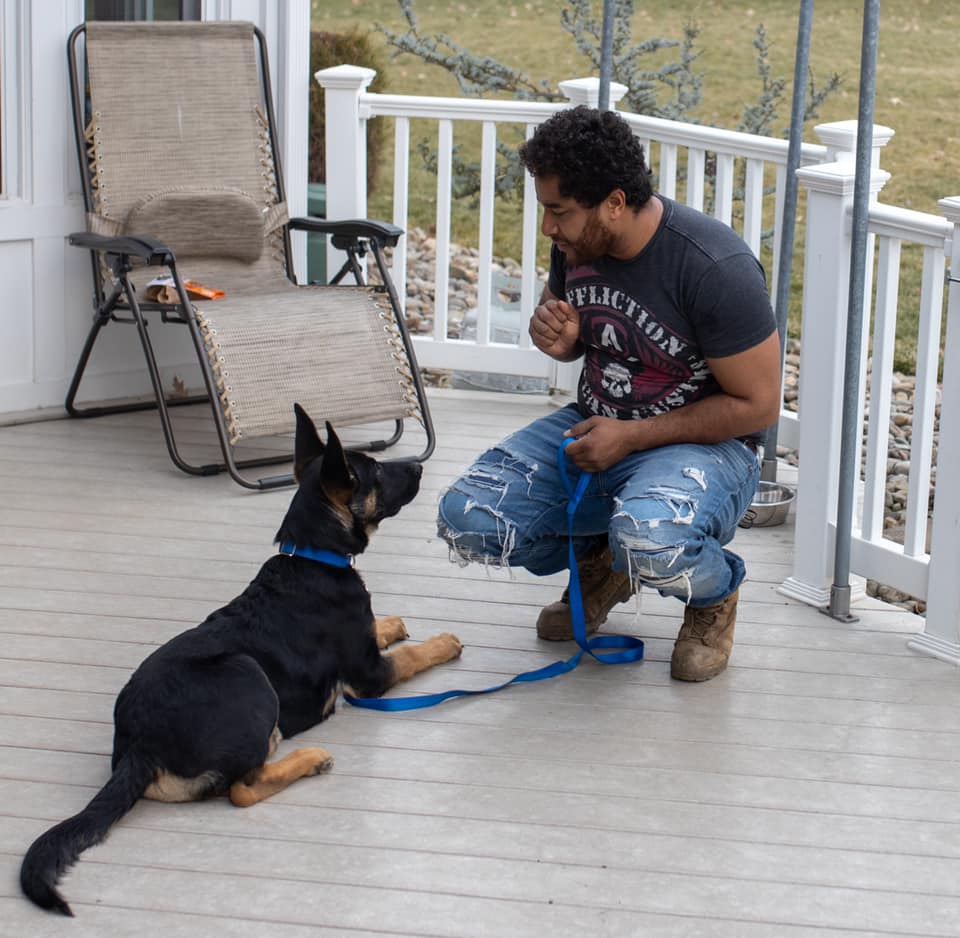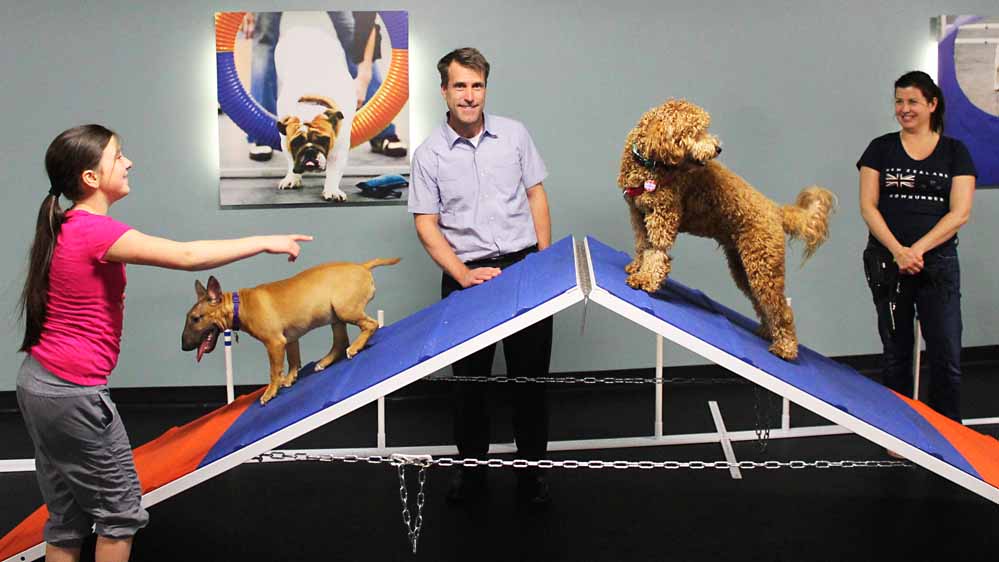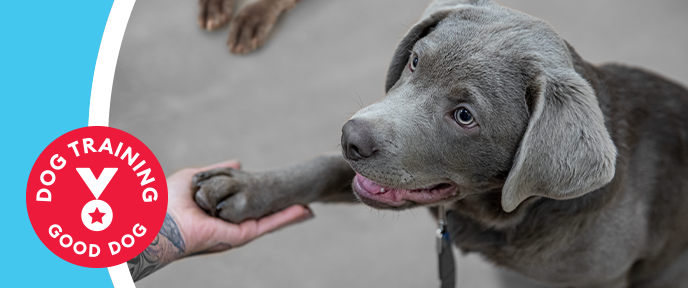Dog Training Near Me vs. Online Courses: Which Works Better?
Effective Techniques for Effective Dog Training: A Comprehensive Overview
Effective pet training needs a nuanced understanding of canine behavior. It depends upon the concepts of positive reinforcement and consistency. Fitness instructors have to recognize the relevance of important commands and socialization. Addressing usual behavioral problems can transform a dog's personality. As the bond between proprietor and pet enhances, the method they connect evolves. The trip of effective training encompasses various approaches that might shock also seasoned family pet proprietors. What are the essential aspects that can make a substantial distinction?
Recognizing Canine Actions
Recognizing canine behavior is essential for reliable pet dog training, as it allows fitness instructors to translate a pet dog's actions and reactions in numerous situations. Pet dogs connect mainly via body movement, vocalizations, and faces. Identifying indications of fear, aggressiveness, or stress can assist fitness instructors adjust their strategies to ensure a positive training experience. For instance, a wagging tail does not constantly show joy; the context and other body signs have to be considered.
Furthermore, comprehending a pet dog's breed-specific characteristics can use understandings right into their habits patterns and impulses. Socializing plays a crucial duty fit a canine's feedbacks to brand-new individuals and environments. Observing a pet's play style can additionally expose their temperament and convenience levels. By meticulously reviewing these behaviors, trainers can produce customized methods that cultivate learning and strengthen the bond between pet and owner, inevitably leading to more effective training results.
The Relevance of Favorable Support
Positive support is a crucial method in canine training that boosts the finding out process by gratifying wanted behaviors. This method urges pet dogs to repeat actions that yield favorable end results, such as treats, appreciation, or play (Dog Training Near Me). By linking great behavior with rewards, pets end up being more inspired and involved throughout training sessions

Integrating positive reinforcement into training routines can result in quicker understanding and better retention of commands. It promotes a cheerful environment that boosts both the dog's experience and the trainer's complete satisfaction, making it an essential element of effective dog training.
Crucial Commands Every Canine Need To Know

Creating a Regular Training Set Up
Developing a constant training routine is vital for reliable dog training, as it helps reinforce understanding and creates a sense of routine for the canine. A structured strategy allows both the instructor and the dog to anticipate training sessions, which can enhance focus and engagement. Preferably, training sessions ought to be short, enduring between 5 to 15 mins, to keep the canine's interest and enthusiasm.
Integrating training right into daily activities, such as mealtime or walks, can also advertise uniformity. This assimilation aids dogs link training with favorable experiences. It is essential for trainers to continue to be versatile; unexpected events may necessitate adjustments to the timetable.
In addition, repetition is vital. Routine practice of commands and behaviors solidifies discovering and builds confidence. By sticking to a consistent timetable, instructors can guarantee that their pets develop good practices and respond dependably to commands, laying the foundation for reliable training outcomes.
Socializing: Trick to a Well-Adjusted Canine
Socializing is crucial for a pet dog's growth, affecting their actions and communications with people and other animals. Very early direct exposure to different environments, seems, and experiences can considerably enhance a dog's versatility and confidence. Utilizing efficient socializing techniques can help ensure a well-adjusted canine companion.
Significance of Very Early Socialization

Methods for Efficient Socialization
While many pet dog owners recognize the value of socializing, comprehending effective strategies to promote this procedure is important for fostering a well-adjusted pet dog. Gradual exposure to diverse settings, people, and other animals can significantly improve a canine's convenience level in various scenarios. Positive support plays a vital role; satisfying preferred behaviors urges pets to come close to brand-new experiences with self-confidence. Structured playdates with genteel pets assist create social abilities and minimize worry responses. Signing up in obedience classes can also provide regulated environments for socialization. Keeping a tranquil disposition as an owner enhances the pet's feeling of safety and security, allowing for more successful interactions. These methods jointly add to a adaptable and balanced canine friend.
Handling Common Behavioral Issues
Taking care of typical behavioral concerns is crucial for maintaining an unified relationship between dogs and their proprietors. Secret difficulties such as hostility, too much barking, and leaping habits need targeted techniques to manage efficiently. Recognizing the root triggers of these actions can bring about successful treatments and an extra balanced canine try these out buddy.
Dealing With Hostility Issues
Aggression in dogs can manifest in various kinds, posturing obstacles for owners and fitness instructors alike. Attending to these problems requires a thorough understanding of the underlying reasons, which might consist of resource, territoriality, or fear safeguarding. Determining triggers is important; proprietors should observe their pet's body language and habits to determine certain situations that prompt aggression. Positive reinforcement techniques can properly customize aggressive actions, rewarding calm responses to determined triggers. Consistency is essential, and owners need to stay person throughout the training procedure. In many cases, professional guidance from a certified dog trainer or behaviorist may be required, especially for extreme hostility. Inevitably, the goal is to create a safe atmosphere for both the pet and those around it.
Taking Care Of Extreme Barking
Too much barking can be a considerable hassle for canine proprietors and neighbors alike, typically signaling underlying issues that need resolving. Recognizing the triggers behind the barking is important; these might include boredom, anxiousness, or an action to exterior stimulations. Owners ought to observe their dog's actions and environment to pinpoint the reason. Dog Training Near Me. Applying regular training strategies, such as favorable reinforcement, can effectively lower barking. Showing commands like "silent" or rerouting the pet's focus presently of barking can be helpful. Furthermore, supplying adequate physical and psychological excitement via workouts and interactive playthings can ease boredom-related barking. In many cases, seeking advice from a specialist instructor or behaviorist may be needed to create tailored methods that address consistent barking problems
Reducing Leaping Actions
Several pets exhibit jumping habits, commonly as a method of expressing enjoyment or looking for interest from their visitors and proprietors. This actions can be bothersome, particularly when it causes unintended injuries or discomfort for guests. To lower leaping, owners must initially remain tranquil and stay clear of compensating the behavior with focus, as this can enhance it. Instead, they can instruct an alternate habits, such as resting, by awarding the canine for remaining calmness when somebody strategies. Uniformity is crucial; all relative must implement the very same policies. Additionally, training sessions ought to consist of disturbances to help the dog learn to regulate their impulses. With time, with patience and determination, leaping can be substantially reduced, resulting in a much more enjoyable atmosphere.
Constructing a Strong Bond Via Training
Training a pet frequently concentrates on behaviors and commands, it additionally serves as a crucial possibility to strengthen the bond between the dog and its proprietor. Participating in training sessions promotes interaction, good understanding, and count on. When owners invest time in educating their pets, they demonstrate dedication, which assists the pet really feel safe and secure and valued. Positive reinforcement methods, such as treats and praise, not just motivate desired behaviors yet likewise strengthen the psychological connection between the dog and proprietor.
Uniformity in training constructs a feeling of integrity, permitting canines to understand their function within the house. Each effective command raises the pet's confidence, resulting in a deeper connection. Routine training sessions can become delightful bonding experiences, full of playfulness and interaction - Dog Training Near Me. Eventually, the process of training goes beyond simple obedience, creating a partnership that enhances the lives of both the pet dog and its proprietor
Regularly Asked Inquiries
What Age Is Finest to Beginning Training a Young Puppy?
The most effective age to start image source training a puppy is normally between 8 to 12 weeks. At this phase, puppies are most responsive to finding out, making it an optimal time for fundamental training and socialization.
The length of time Should Each Educating Session Last?
The ideal duration for every pet dog training session commonly varies from 5 to 15 minutes, depending on the pet dog's age and attention period. Short, focused sessions enhance learning and retention, making training a lot more effective and delightful.
Can Older Pets Still Be Trained Efficiently?
Older dogs can without a doubt be trained efficiently. With persistence and consistent methods, they can find out new commands and actions. Their experience commonly makes them extra responsive to training, improving the bond in between pet and owner.
What Equipment Do I Required for Training?
For reliable pet training, essential devices consists of a sturdy chain, a comfortable harness, high-value deals with, training remote controls, and a variety of toys. These tools promote interaction and strengthen positive actions throughout training sessions.
Just how Do I Track My Dog's Training Progression?
To track a pet's training progress, one can maintain a journal, record turning points, and note behavior adjustments. Regular analyses, consisting of timed commands and obedience examinations, assistance determine renovation and identify locations needing further focus.
Recognizing canine actions is crucial for efficient pet training, as it permits trainers to interpret a pet dog's activities and responses in different circumstances. Establishing a consistent training routine is important for efficient pet training, as it helps enhance learning and develops a feeling of regular for the canine. Training a canine usually focuses on commands and actions, it additionally offers as an essential possibility to enhance the bond in between the dog and its owner. When proprietors invest time in instructing their canines, they show commitment, which helps the pet really feel safe and valued. The perfect duration for each canine training session typically varies from 5 to 15 mins, depending on the canine's age and attention span.